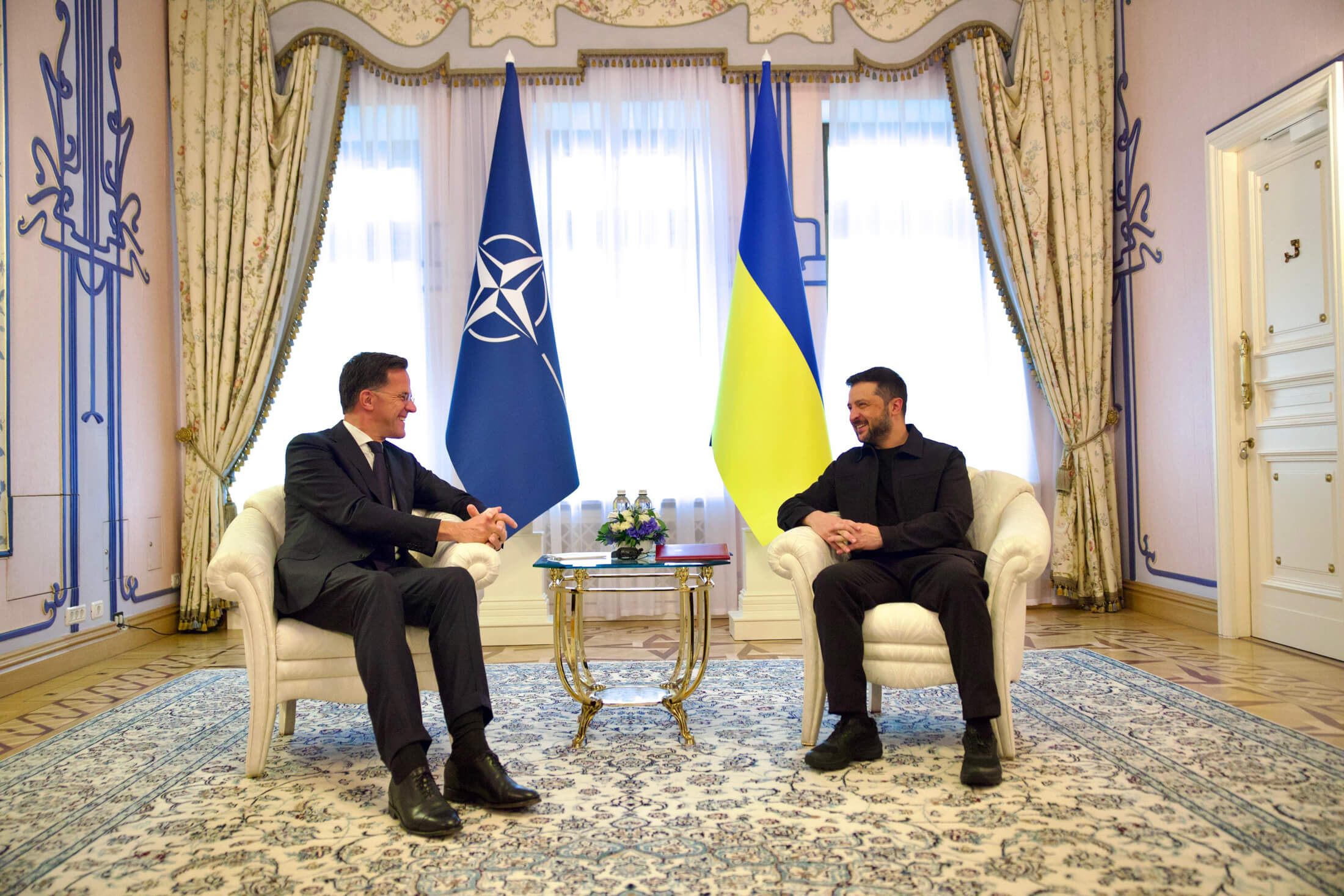Security guarantees for Ukraine appear to be the most crucial element of any roadmap to peace. Yet they have also proven the most difficult to resolve.
The issue dominated conversations after the meeting between Donald Trump and Vladimir Putin in Alaska, exposing questions of moral responsibility, the sincerity of declared values, and sometimes the gap between political vision and electoral pressures across countries.
At the conceptual stage, negotiators are weighing a demilitarised buffer zone stretching 20 kilometres on each side of the frozen front line.
The first layer would be the demilitarised zone itself, potentially patrolled by peacekeepers from a third country with the consent of both Ukraine and Russia. Behind it, Ukrainian troops would form the second line of defence.
A European “deterrence force” would serve as the third layer, stationed farther from the border and backed from the rear by U.S. support.
A central question, still unresolved, is whether NATO or the United States would assume command of the mission. No less uncertain is whether Kyiv would accept a plan or consider the buffer zone as a territorial concession.
A central point of contention
The prospect of “boots on the ground” has become a central point of contention. Across Europe, the idea is largely unpopular—63 per cent of Poles and 51 per cent of Germans oppose the deployment of troops.
Any peacekeeping mission would therefore likely hinge on the French and the British, who have positioned themselves to lead the effort.
The numbers under discussion vary widely, from 4,000 to as many as 60,000 soldiers, but firm commitments remain absent.
“The appearance of troops from NATO countries is unacceptable” - Sergei Lavrov
The United States has categorically ruled out deploying its own forces, though it is weighing the involvement of private contractors.
One major point tends to be overlooked: Russia’s reaction. Moscow has consistently rejected the presence of NATO forces.
“The appearance of troops from NATO countries—even under another banner, whether that of the EU or under national flags—changes nothing. For us, this is unacceptable,” Russian Foreign Minister Sergei Lavrov said.
A genuine safeguard
Yet at the same time, Putin is in China, where he may discuss what was previously agreed with Trump. The talks now appear to centre on a proposal backed by Washington: the possible involvement of Chinese troops in patrols.
One option under consideration would place Chinese forces directly along the line of separation as the power accepted by both Ukraine and Russia.
It seems that both Europeans and Ukrainians see this as the only way to move forward with the peacekeeping mission.
One European diplomat, who preferred to stay unnamed, told me in a private conversation the EU doubts Russia will ever accept NATO troops on the ground unless they are accompanied by Chinese—or other Kremlin-friendly—forces.
Ukrainian member of parliament Victoria Podhorna echoes him, saying that Russia will not agree to any forces without China's involvement and hopes for understanding from Washington and Beijing.
“Russia would hesitate to act against Chinese forces" - Ukrainian member of parliament Victoria Podhorna
“It’s possible that China and the U.S. could negotiate an agreement for China to join the peacekeeping mission,” explains Podhorna. “This would be ideal, as it would ensure a genuine safeguard—Russia would hesitate to act against Chinese forces. The critical issue, however, is whether such an agreement is achievable. These are pivotal factors for ending the conflict.”
Over the weekend, Vladimir Putin once again visited Beijing. Official reason – to participate in the WWII commemorations, convenient in both flexing the muscles of unofficial allies and discussing the relevant geopolitical issues.
No formal agreements without substantive commitments
Meanwhile, Putin’s press secretary Dmitri Peskov reiterated the statement about Moscow’s “readiness” 'to resolve the issue through political and diplomatic means' and reinforced the recent message from the U.S. administration that Europeans are supposedly hindering Trump's peace efforts.
Even if Putin and Xi Jinping reach an agreement and establish a peacekeeping mission, Russia's additional demands, such as the ambiguous 'denazification' and 'demilitarisation,' pose a significant challenge. Ukraine is highly unlikely to accept these terms.
 We seek security guarantees from key European nations and the United States, endorsed by their parliaments and the U.S. Congress - Volodymyr Zelenskyy
We seek security guarantees from key European nations and the United States, endorsed by their parliaments and the U.S. Congress - Volodymyr Zelenskyy
A recent survey by the Ukrainian firm 'Rating' reveals that 75% of Ukrainians support a ceasefire only if accompanied by robust international security guarantees.
Key guarantees prioritised by Ukrainians include sustained funding and arms supplies for the military (52%), commitments from allies to intervene militarily in the event of another attack (48%), and international monitoring of air and maritime spaces (44%).
The topic of NATO membership for Ukraine has faded from public discourse, though behind closed doors, politicians and diplomats continue to advocate for it as an irreversible goal.
According to Victoria Podhorna, U.S. involvement is critical to achieving peace. "The U.S. stance is, to put it diplomatically, cautious — they prefer minimal engagement," she muses. “They might provide intelligence and limited support, but I doubt that anything short of substantial U.S. commitment will translate into meaningful security guarantees.”
Despite her cautious optimism about ongoing efforts, the parliamentarian remains sceptical that agreements can be reached swiftly.
In a recent interview, President Volodymyr Zelenskyy made it clear that Ukraine will not accept formal agreements without substantive commitments.
"We seek security guarantees from key European nations and the United States, endorsed by their parliaments and the U.S. Congress," Zelenskyy stressed. "Our goal is to secure legally binding security assurances."
This week, he will continue discussions with Western partners.